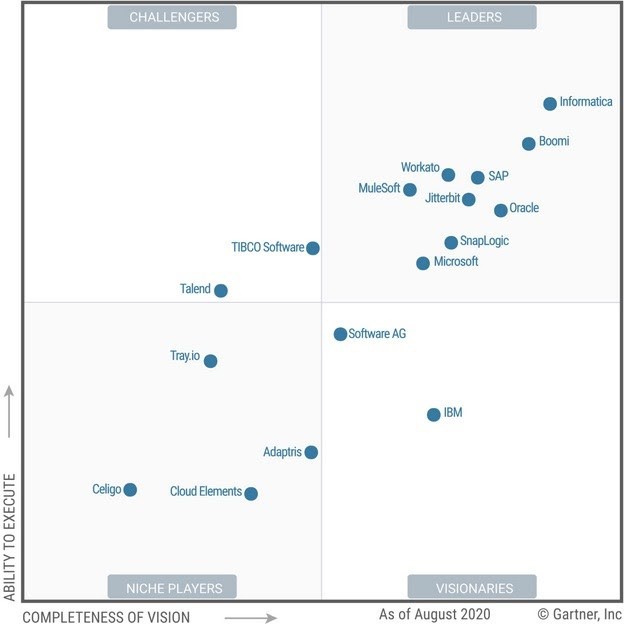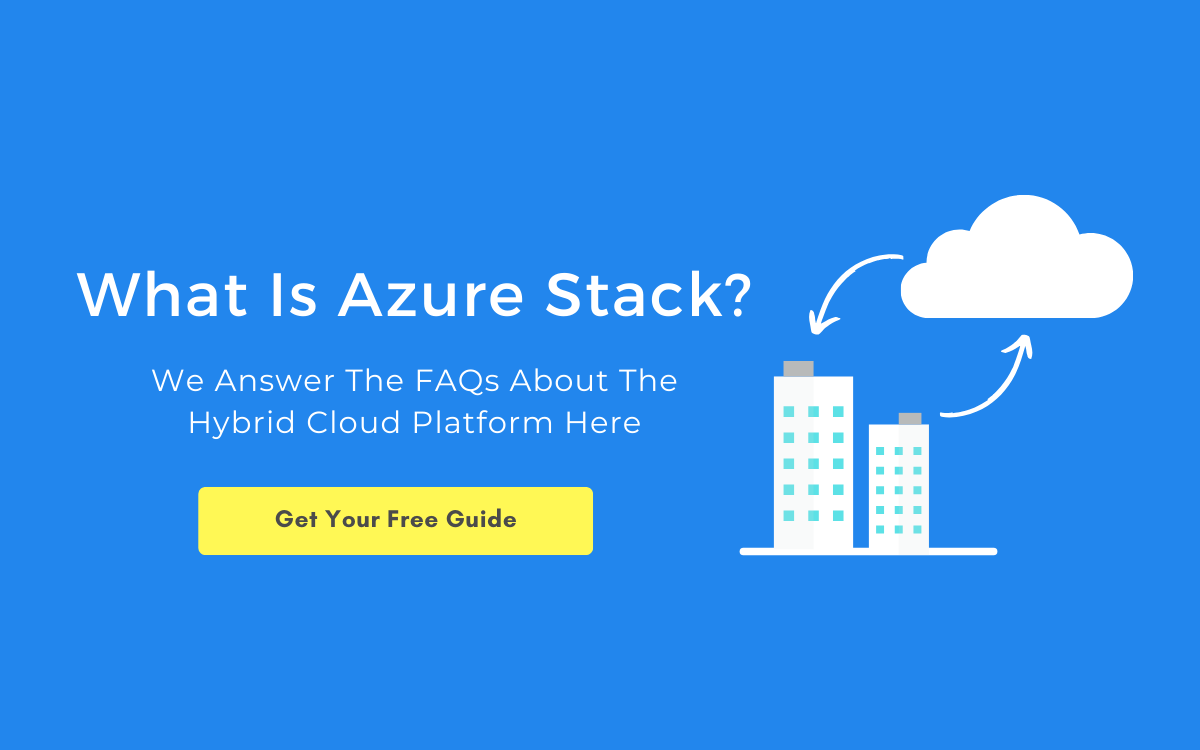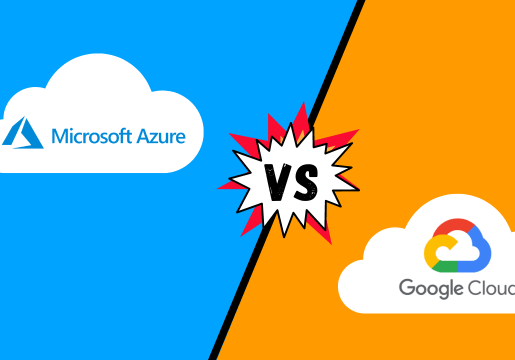If you’ve decided that adopting cloud computing is the way to go in order to spur innovation, cut costs and increase agility in your business, you’re not alone.
According to the latest research by Gartner, the Infrastructure-as-a-Service (IaaS) market has grown to be worth $64.3 billion as of 2021 – up from $50.4 billion back in 2020.
And when it comes to the IaaS market, Amazon Web Services (AWS) is the clear leader with 33% of the global market share, followed by Microsoft Azure at 16%.
Both AWS and Azure offer robust cloud computing, storage, and database services, making both IaaS platforms viable options for businesses seeking to transition their IT infrastructure to the cloud.
However, AWS does enjoy first mover advantage over Azure, having pioneered the entire enterprise cloud computing industry back in 2006.
This means it offers a more mature IaaS solution, with over 175 cloud services across all categories – more than any other IaaS vendor – as well as market-leading partner ecosystem and general product strategy.
That said, Microsoft Azure is not without its own competitive advantages over AWS. And depending on your specific business needs, these could be decisive factors when it comes to choosing which cloud computing platform you should transition your business towards.
Let us look at the three key reasons why you might want to choose Microsoft Azure over AWS as the IaaS platform for the cloud computing needs of your business.
Native Integration With The Microsoft Product Ecosystem

Source: ScienceSoft
One of the biggest reason to go with Microsoft Azure over AWS is if your business is already using other Microsoft products, as is the case with many businesses like yours.
That’s because if you’re already using Microsoft enterprise software such as Office 365, Teams, SharePoint, and SQL Server in your business processes, Azure – being part of the Microsoft ecosystem – can integrate with your Microsoft-based business environment much more seamlessly than AWS.
In addition, using Azure with your other Microsoft software products also greatly simplifies the fulfillment of your enterprise computing needs, as you’re sourcing all of your necessary software from a single vendor like Microsoft.
On top of that, if you’re using mainly Microsoft software products, your business would have already signed an Enterprise Agreement with Microsoft.
This means that your business will be eligible for major discounts for choosing Azure as the IaaS platform for your business, making it the more cost-effective choice.
Azure Stack Offers Superior Hybrid Cloud Deployment

Source: Cloud Academy
While AWS has the first mover advantage in the IaaS market overall, the opposite is true when it comes to hybrid cloud deployments.
As a matter of fact, Microsoft has long been the vendor of choice for hybrid deployments since 2016, when it first introduced Azure Stack – the first true hybrid cloud computing platform in the market.
Azure Stack provides businesses like yours with the hardware and software to deploy Azure cloud services from local data centres, and thus provides the best of both worlds; the high scalability of the cloud, as well as the security of an on-premises deployment.
With 58% of respondents preferring a hybrid cloud strategy in the RightScale State of the Cloud report in 2019, this makes Azure Stack a preferable choice for business like yours which are in the midst of transitioning from on-premise to cloud computing.
The flexibility that Azure brings to the table when it comes to hybrid deployment is one of the highlights of Microsoft’s IaaS platform, especially in comparison with AWS.
That’s because AWS was late to the party when it comes to hybrid cloud strategy, having only begun moving into the market with the launch of AWS Outposts at its re:Invent conference held in 2018.
Therefore, if you’re planning to ease the transition of your business from on-premise to cloud computing by opting for a hybrid cloud deployment, Microsoft Azure Stack offers the more mature option in this regard.
To learn more about Microsoft Azure Stack, click the image below for the answers to the most common FAQs about the hybrid cloud platform.
Azure Brings PaaS Capabilities To The Table
While both AWS and Microsoft Azure are both IaaS platforms, Azure also brings stronger Platform-as-a-Service (PaaS) capabilities to the table as well.
This means that while both AWS and Azure offers servers, storage, networking and hybrid infrastructure, Azure goes one step further by providing middleware, development tools, business intelligence (BI) services, database management systems etc. as well.
In addition, Azure also supports all leading development frameworks such as .NET, Java, Ruby, Node.JS, PJP and Python. It also supports DevOps tools such as VST, Bitbucket, and GitHub.
This means that if you have app developers making use of Microsoft products, services and frameworks in your business, Azure provides a platform for them to migrate or extend these services to a cloud environment easily, and use them to develop and deploy applications to the cloud as well.

Gartner's Magic Quadrant for Enterprise Integration PaaS 2020. Source: BMC
It’s no surprise then, that Azure PaaS was positioned as a “leader” in the Gartner Magic Quadrant for Enterprise Integration PaaS 2020.
Notably, AWS does not even enjoy a presence in this Magic Quadrant. This is because Amazon’s IaaS platform lacks products and services with features that facilitate enterprise integration, like Azure PaaS does.
Microsoft Azure Offers Key Advantages Over AWS As An IaaS Platform
Choosing the right vendor is crucial for the successful transition of your business from an on-premise environment to a cloud computing platform.
In this regard, AWS and Microsoft Azure are both solid options for your business’s future IaaS platform, being the No. 1 and 2 market leaders in the market today.
On the other hand, each of these platforms have their own set of competitive advantages over the other, and whether these makes one or the other more suitable for your business depends entirely on your specific set of business needs.
In the case of Azure, you may want to choose it over AWS as your IaaS platform if your business is already using other Microsoft products, are keen on the hybrid cloud approach to deployment, and/or need to extend Microsoft products and services from an on-premise to a cloud environment.
Should you decide to choose Microsoft Azure as your IaaS platform for transitioning your business to the cloud, you may like to know that AFON is an official vendor for Microsoft with the resources and expertise to assist you with an implementation and deployment of both Azure and Azure Stack.
And if your business is currently using SAP Business One, we can also help you migrate your ERP software to Azure, being the first Microsoft vendor in Singapore to successfully host SAP Business One in Azure for our customers.
Therefore, if you’d like us to implement Microsoft Azure or Azure Stack in your business, do give us a call at +65 6323 0901 or drop us a note, and we’ll get in contact with you shortly.
Otherwise, if you’d like to learn more about what Microsoft Azure can do for your business, click on the image below to find out more.





